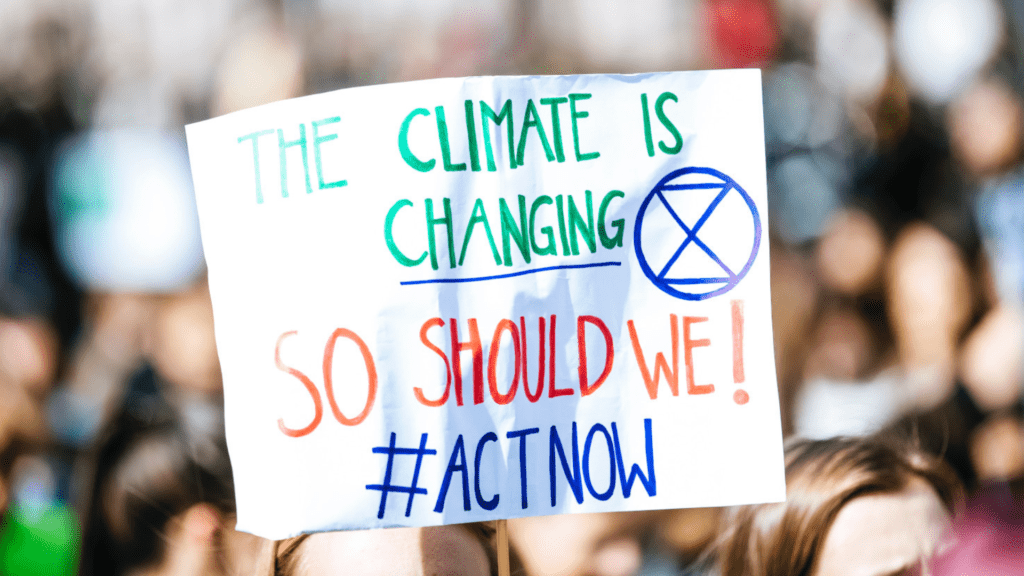Climate Change and Global Summits Pushing for Environmental Action

Climate change stands as one of the most pressing issues facing our planet today. From extreme weather events to rising sea levels and loss of biodiversity, the impacts of climate change are felt globally. To combat these urgent challenges, nations are coming together at global summits with the shared goal of limiting global warming and preserving our ecosystems. This blog explores the role of these summits, the achievements and challenges so far, and the road ahead for climate action.
Understanding the Impact of Climate Change
Before diving into the details of global summits, it’s essential to understand the gravity of the climate crisis:
- Global Warming: Increased greenhouse gas emissions have caused the Earth’s average temperature to rise. Since the late 19th century, global temperatures have increased by approximately 1.1 degrees Celsius. While this may seem minor, even a small temperature increase has major consequences.
- Extreme Weather Events: Rising temperatures are linked to more intense hurricanes, floods, wildfires, and droughts. These extreme events disrupt lives, harm economies, and threaten food security.
- Loss of Biodiversity: Habitat destruction, pollution, and climate-related changes are driving countless species toward extinction. This loss of biodiversity affects ecosystem stability and diminishes resources crucial for human survival.
- Rising Sea Levels: As polar ice melts, sea levels are rising, threatening coastal communities around the world. This could lead to large-scale displacement and economic disruption.
The Role of Global Summits in Climate Action
International climate summits have become the most significant venues for addressing climate change on a global scale. These summits serve several essential functions:
- Encouraging Cooperation: Climate change is a global problem that requires cooperation between nations. Summits bring together world leaders, scientists, and activists to discuss strategies for reducing emissions and mitigating climate impacts.
- Setting Targets: Through agreements and declarations, summits set ambitious targets for limiting global temperature rise and protecting natural resources. For instance, the landmark Paris Agreement, adopted at COP21 in 2015, set a goal to keep global warming well below 2 degrees Celsius.
- Mobilizing Funds: Fighting climate change requires significant financial resources, particularly for developing nations that may not have the infrastructure to transition to green energy or deal with climate impacts. Summits provide a platform for financial commitments, helping ensure that all countries can participate in global climate action.
- Accountability: By establishing frameworks and timelines, summits hold countries accountable for their commitments. Regular reviews encourage nations to update their targets and report on progress, fostering transparency and accountability.
Key Achievements from Recent Global Climate Summits
- The Paris Agreement (COP21, 2015):
- The Paris Agreement marked a historic milestone, with 196 countries committing to limit global temperature increases to well below 2 degrees Celsius and to pursue efforts to limit warming to 1.5 degrees. This agreement created a universal framework for climate action, setting the stage for future initiatives.
- The agreement emphasizes Nationally Determined Contributions (NDCs), where countries outline their own climate goals and actions, creating a flexible, collaborative approach.
- The Glasgow Climate Pact (COP26, 2021):
- Held in Glasgow, Scotland, COP26 aimed to solidify the progress made since the Paris Agreement. Key outcomes included pledges to cut methane emissions, phase out coal, and halt deforestation by 2030.
- Developed nations agreed to double funding for adaptation measures, helping vulnerable nations prepare for the unavoidable impacts of climate change.
- Although some countries, like India, committed to net-zero targets by 2070, there was disappointment over the lack of a firm phase-out date for coal, reflecting the complex balance between economic growth and environmental responsibility.
- The Biodiversity COP15, Kunming-Montreal (2022):
- Unlike climate COPs, COP15 was specifically focused on biodiversity. The Kunming-Montreal Agreement, known as the “30 by 30” pledge, aims to protect 30% of Earth’s land and oceans by 2030.
- This summit underscored the interconnectedness of climate change and biodiversity, emphasizing that protecting ecosystems is key to absorbing carbon emissions and preventing further warming.
- COP28 (2023):
- COP28, held in the United Arab Emirates, aimed to address the gap between current actions and the goals set out in the Paris Agreement. With a focus on financing and accountability, COP28 emphasized the need for developed countries to fulfill their financial commitments to support climate action in developing nations.
- This summit also stressed innovation in green technology, encouraging investments in renewable energy, electric vehicles, and carbon capture technologies.
Challenges and Criticisms of Global Summits
While global climate summits have achieved significant milestones, they are not without challenges and criticisms:
- Inadequate Financial Support:
- Many developing nations argue that they lack the financial resources to transition to green energy and adapt to climate change impacts. Despite promises of climate finance, developed nations have yet to fully deliver on their commitment of $100 billion per year for these purposes.
- Lack of Binding Enforcement:
- Although agreements like the Paris Agreement set targets, there are few binding enforcement mechanisms. This means countries are often free to fall short of their commitments without facing consequences, undermining accountability.
- Economic and Political Obstacles:
- Some countries, particularly those heavily reliant on fossil fuels, face political and economic obstacles to making ambitious commitments. As a result, global summits sometimes produce compromises that fall short of the necessary actions to curb climate change.
- Uneven Progress:
- Developed nations are often better equipped to reduce emissions and adapt to climate impacts. Meanwhile, many developing nations struggle due to limited resources, resulting in uneven progress toward global climate goals.
Moving Forward: The Road Ahead for Climate Action
Despite these challenges, climate summits remain crucial platforms for progress. To strengthen climate action, the global community must focus on several key strategies:
- Increasing Climate Finance:
- Developed nations should honor their financial commitments and explore new funding mechanisms to help developing countries transition to renewable energy, build climate resilience, and recover from climate-related disasters.
- Strengthening Enforcement Mechanisms:
- Implementing more robust accountability measures, such as regular reviews and penalties for non-compliance, could ensure that countries adhere to their climate commitments.
- Prioritizing Renewable Energy:
- Accelerating the transition to renewable energy sources like wind, solar, and hydro will be essential for reducing greenhouse gas emissions. Investing in research and infrastructure for these technologies can make clean energy accessible and affordable for all.
- Involving Local Communities:
- Engaging local communities in climate solutions is essential for effective action. Indigenous knowledge, community-led initiatives, and grassroots activism can drive meaningful change and help preserve vulnerable ecosystems.
- Focusing on Adaptation and Resilience:
- As climate impacts intensify, adaptation must be prioritized alongside mitigation efforts. Preparing for extreme weather events, improving infrastructure, and investing in resilient agriculture will help protect communities from the worst effects of climate change.
Conclusion
Global climate summits play a vital role in uniting the world’s nations to address the shared threat of climate change. While challenges persist, these gatherings offer opportunities for collaboration, target-setting, and financial support. As we move forward, a stronger commitment to climate action, innovation, and accountability will be essential for achieving the ambitious goals necessary to protect our planet for future generations.
By recognizing the urgency of the crisis and leveraging the power of global cooperation, we can build a more sustainable and resilient world. Climate change may be one of the greatest challenges of our time, but through collective action and responsibility, we have the tools to overcome it.




